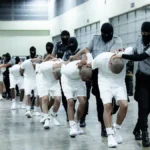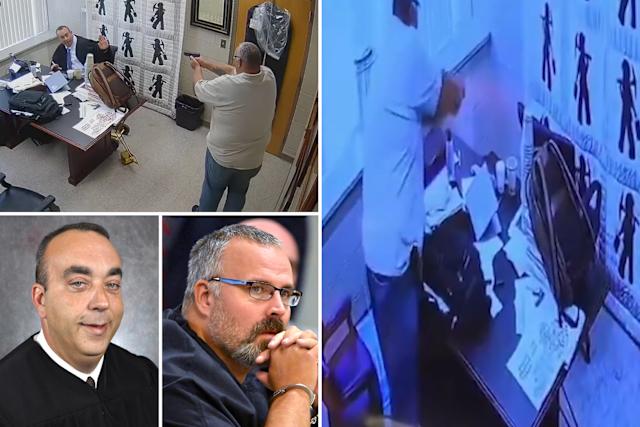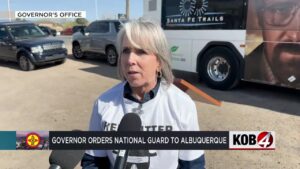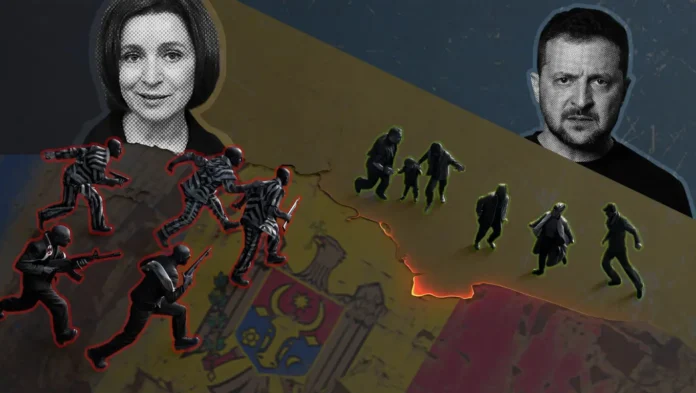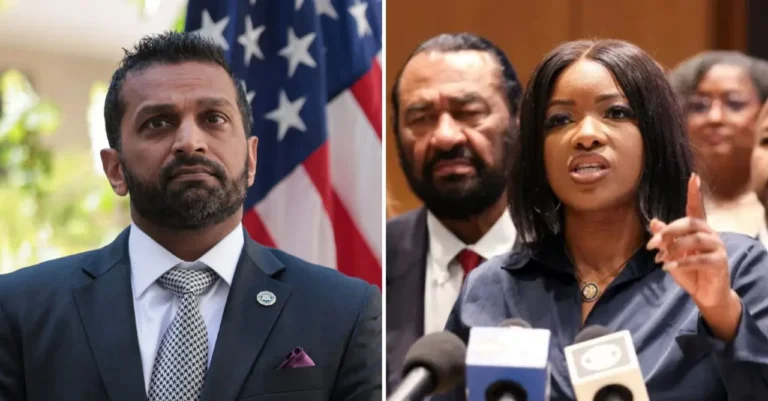Former Blackwater CEO Erik Prince and a team of defense contractors are pitching the White House on a plan to vastly expand deportations to El Salvador — transporting thousands of immigrants from U.S. holding facilities to a sprawling maximum security prison in Central America.
The proposal, exclusively obtained by POLITICO, says it would target “criminal illegal aliens” and would attempt to avoid legal challenges by designating part of the prison — which has drawn accusations of violence and overcrowding from human rights groups — as American territory.
It’s unclear how seriously the White House is considering the plan by Prince, who has drawn scrutiny for his firm’s role in a deadly massacre in Iraq two decades ago.
But it would give Prince’s group an unprecedented and potentially highly lucrative role in an expanded version of a transnational operation that has elicited its own web of controversies, in part because it has swept up immigrants who do not have criminal records in the United States.
The group has had multiple talks with administration officials, and the ideas laid out in the proposal are likely to be a top subject in the bilateral meetings with El Salvador at the White House next week, according to two people familiar with the Prince proposal and an administration official, granted anonymity to discuss information that has not previously been made public.
Administration officials have already discussed the idea of the U.S. owning some of the prison complex, the administration official said, adding that the White House continues to weigh a number of options and that the plan would be in line with the goal of getting “dangerous people as far away from the continental U.S. as possible.”
The administration official also said they expect the proposal to be discussed during El Salvador President Nayib Bukele’s visit to the White House on Monday, when he is planning to meet with President Donald Trump to hash out a variety of immigration issues.
The proposal would ultimately put Prince in charge of an extraordinary privatization effort that would use his company to handle logistics, including ferrying tens of thousands of detainees from American holding cells to El Salvador’s prison.
An LLC called 2USV was registered in Wyoming on Wednesday, an indication that Prince’s group is hoping to move to a more serious phase of pitching the White House.
Prince and the White House declined to comment.
CLICK HERE TO READ MORE FROM THE REPUBLICAN VOICE
It’s Prince’s latest bid to seek government contracts as the Trump administration continues to face legal and logistical headwinds in its efforts to rapidly deport undocumented immigrants, and it comes just months after the former Blackwater CEO pitched the White House on an expansive plan to outsource the president’s mass deportations campaign — a proposal first reported by POLITICO.
Now Prince has zeroed in on a narrower target, further evidence that the administration’s desire to make good on the president’s signature campaign promise has created an opening for private contractors who see potential profits in mass deportations.
The proposal says Prince’s group, in partnership with El Salvador, will facilitate an operation that would handle the logistics of gathering “100,000 of the worst criminal offenders” from U.S. prisons, holding them at a 10,000-person detention camp and flying them to El Salvador.
The group says it will need access to the government’s immigration files from law enforcement agencies to determine their immigration status, further entwining the private enterprise with government operations.
“This contract will not only solve the legal issues pertaining to removing criminal aliens, it will enhance the government’s capability to locate, capture, detain and deport aliens,” the document says.
Prince’s group also wants a role in the immigration courts, one of several elements of the proposal that would likely draw legal challenges.
If the immigrant does not have a deportation order, 2USV will “facilitate a hearing before an immigration judge to adjudicate any pending asylum claim.”
The group also says it will work with prosecutors to “make deals with incarcerated individuals whereby some of their prison sentence will be waived in exchange for the granting of a deportation order.”
The proposal includes sample language for a “Treaty of Cession” so that a portion of the prison complex can become U.S. territory, arguing that “transferring a prisoner to such a facility would not be an Extradition nor a Deportation.”
Once the land is owned by the U.S., the proposal says it will be leased back to El Salvador to run the prison complex and urges the Homeland Security secretary to “suspend the ICE detention standards” to avoid questions about detention standards established by Immigration and Customs Enforcement and the Bureau of Prisons.
The document also includes a letter from El Salvador’s Minister of Justice and Public Security Hector Gustavo Villatoro, dated March 13. It says Prince, through his new special entity called 2USV, is serving as a “trade agent” for El Salvador to “reach an agreement on the use of El Salvador’s prisons to house foreign criminals.”
A spokesperson for Bukele and the embassy did not respond to a request for comment on the country’s purported role in the project.
The letter states that the prison complex can hold “up to 40,000 criminals immediately” with the possibility of housing up to “100,000 criminal aliens in the near future.”
Prince began discussions with El Salvador last year before Trump was elected and first floated the idea of using their prisons for migrants, according to one of the people familiar with the matter.
Those talks apparently accelerated after the election, according to the letter, which states that he proposed his “commercial terms” with Prince before Secretary of State Marco Rubio visited El Salvador in early February.
During Prince’s visit in August, he toured the prison complex and met with Bukele to discuss the country’s efforts to combat crime.
Prince at the time also expressed frustrations with the State Department’s poor travel advisory, which the Trump administration upgraded this week — ranking El Salvador’s travel safety designation the best possible and placing it higher than several countries in Western Europe.
The proposal argues that the setup could help the Trump administration get around potential legal hurdles with the president’s invocation of the Alien Enemies Act, which gives the president powers during wartime to detain and deport noncitizens.
Doing so could also alleviate logistical challenges that have emerged with the use of the Naval base in Guantanamo Bay, while helping the Trump administration remove people from the United States who can’t be returned to their country of origin.
But the solutions outlined in the proposal may not fully resolve the legal questions surrounding Trump’s use of the Alien Enemies Act, which the president invoked in March to deport hundreds of Venezuelans.
CLICK HERE TO READ MORE FROM THE REPUBLICAN VOICE
The Supreme Court on Monday lifted a temporary block on the administration’s use of the two-centuries-old law, meant to guard against foreign invasions in wartime.
But the court also ruled that the United States must give these Venezuelans labeled as “alien enemies” an opportunity to challenge their deportations before removing them from the country, and the Trump administration has since faced additional setbacks.
The court’s ruling was narrow, and there are still major questions about the legality of Trump using a wartime law when the United States is not at war.
There could be additional legal hurdles with the plan, and the proposal acknowledges that it’s “highly likely that this effort will be tested judicially by the ACLU or other activist group.”
And even if the proposal is targeted at undocumented immigrants, it could be a precursor to deporting U.S. citizens — an idea Trump has repeatedly floated, said a former DHS official, granted anonymity to discuss the plan.
Trump said over the weekend that he would “love” to deport citizens to El Salvador, adding: “If they can house these horrible criminals for a lot less money than it costs us, I’m all for it.”
Monday’s meeting comes as the Trump administration was already planning to send more immigrants to El Salvador. DHS Secretary Kristi Noem said Wednesday that she visited El Salvador last week to meet with Bukele, asking “him to continue to take terrorists from the United States of America that no longer belong here.”
Trump invoked the 1798 law in March, deporting to El Salvador hundreds of Venezuelans who the administration claimed to be members of the Tren de Aragua gang — an action that spurred immediate court challenges.
A number of family members and lawyers have since argued that some of the detainees are not associated with the gang.
The Supreme Court on Thursday ordered the administration to facilitate the return of a Maryland man who had been sent to the prison despite having protected legal status.
The Trump administration previously reached a one-year deal with El Salvador to imprison more than 200 alleged gang members in the prison.
It’s unclear when the agreement was reached, but it was announced in the days after Trump deported the Venezuelans on March 15.
The U.S. has so far paid El Salvador $6 million — a figure Prince and Bukele are vying to increase, though it’s not clear by how much. The draft of the proposal obtained by POLITICO did not include a budget.
Prince and his group’s earlier proposal to the White House was a more expansive mass deportation plan that included an army of private agents promising to arrest and remove 12 million people at a cost of $25 billion.
That plan, which has not been publicly embraced by the White House, also raised a host of legal issues, some of which overlap with the newest plan.
CLICK HERE TO READ MORE FROM THE REPUBLICAN VOICE
The founders of 2USV have a long history with the U.S. government and Trump world. Blackwater was formed by Prince in 1996 to provide training services to law enforcement, military personnel and other government agencies.
It gained attention for its work in Iraq and Afghanistan, providing security services for U.S. officials and military personnel. Critics viewed Blackwater’s rise as a result of the U.S. military’s overextension in the Middle East, raising questions about oversight and accountability of private contractors.
source: politico.com/military-contractors-prison-plan-detained-immigrants-erik-prince


